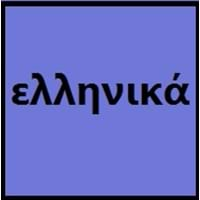Czech vs Greek
- The Czech language was known as Bohemian as early at 19th century.
- In czech language, there are many words that do not contain vowels.
- Greek is the longest documented language of all the Indo-European Langauges.
- The official language of education in the Roman Empire was Greek.
Czech and Greek Language History
Comparison of Czech vs Greek language history gives us differences between origin of Czech and Greek language. History of Czech language states that this language originated in 9th Century whereas history of Greek language states that this language originated in 1500 BC. Family of the language also forms a part of history of that language. More on language families of these languages can be found out on Czech and Greek Language History.
Czech and Greek Greetings
People around the world use different languages to interact with each other. Even if we cannot communicate fluently in any language, it will always be beneficial to know about some of the common greetings or phrases from that language. This is where Czech and Greek greetings helps you to understand basic phrases in Czech and Greek language. Czech word for "Hello" is ahoj or Greek word for "Thank You" is ευχαριστώ (ef̱charistó̱). Find more of such common Czech Greetings and Greek Greetings. These greetings will help you to be more confident when conversing with natives that speak these languages.
Czech vs Greek Difficulty
The Czech vs Greek difficulty level basically depends on the number of Czech Alphabets and Greek Alphabets. Also the number of vowels and consonants in the language plays an important role in deciding the difficulty level of that language. The important points to be considered when we compare Czech and Greek are the origin, speaking countries, language family, different greetings, speaking population of these languages. Want to know in Czech and Greek, which language is harder to learn? Time required to learn Czech is 44 weeks while to learn Greek time required is 44 weeks.





